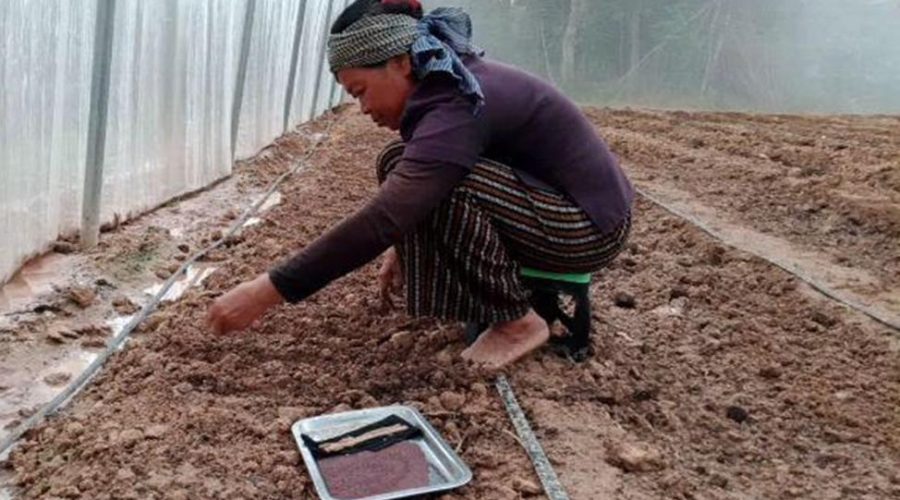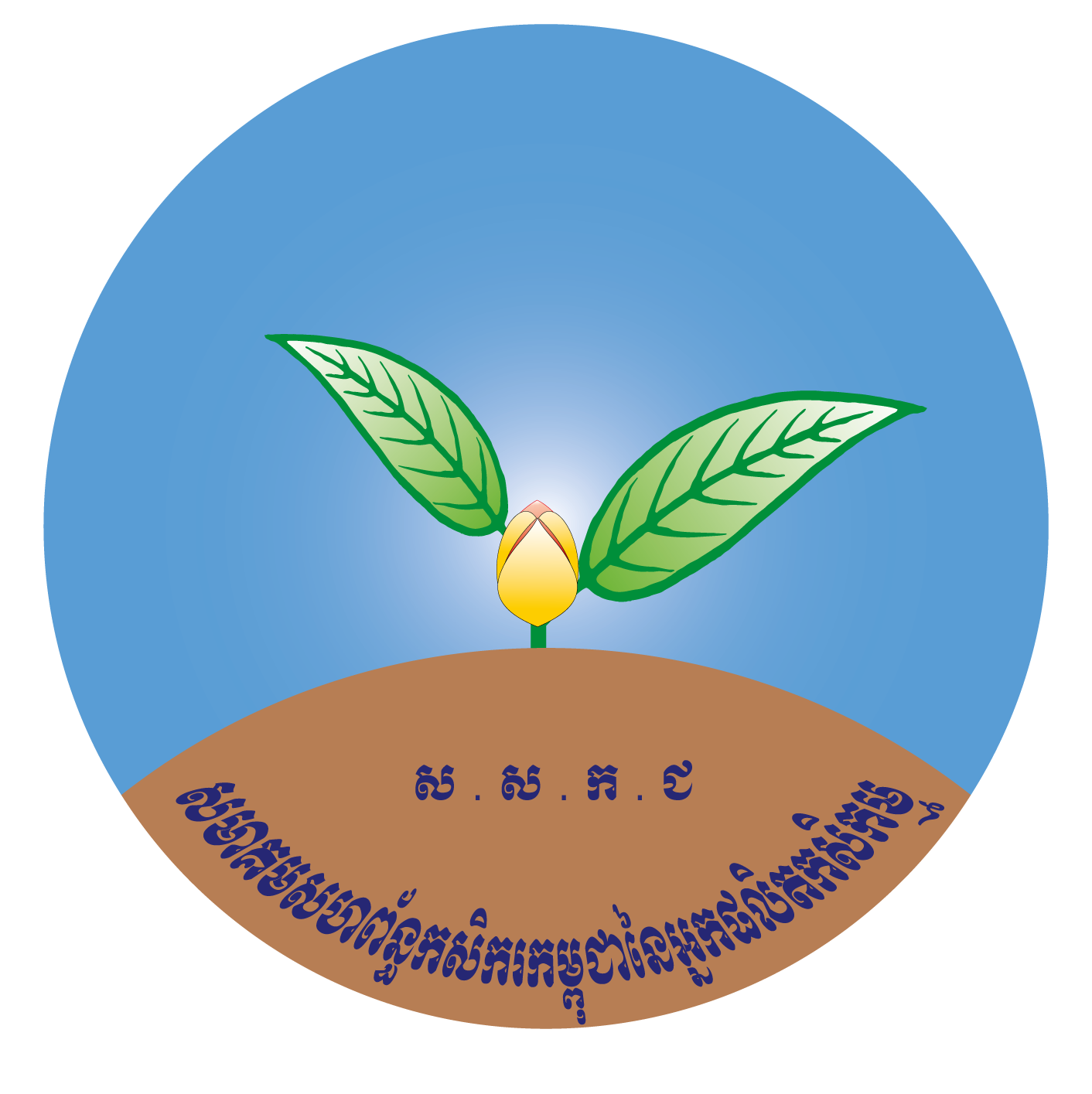
Cambodian smallholders fight hunger and poverty through improving organic and more natural agricultural production!
Mrs. Yos Sokhar, aged 52 years old is an active farmer live in Basac village, Basac commune, Svay Chrum district, Svay Rieng province. She is married with Mr. Keo Tith, aged 66 years old a retired soldier, now he also become a farmer and active on his small-scale farm with his wife to grow vegetable and some other crops just around their house. They one daughter aged 20 years old, adopted nephew aged 18 years old. Mrs. Sokhar started growing vegetable in 2002 with land size of about 100 Sq meters with old practices.
After establishment of BASAC commune farmers’ association, now BASAC agricultural cooperative in 2007, then she registered as a member. Since then, her family received various agricultural technical training courses and many other capacity buildings and advisory supports from the Cambodian Farmer Federation Association of Agricultural Producers (CFAP) on vegetable and animals production, after retirement of her husband, so her husband have full time to work on small-scale farm and received more technical training courses, advisory support and participation in other events at sub-national, national and international level in behalf of CFAP and BASAC Agricultural Cooperative with support from the Medium Term Cooperation Programme Phase II (MTCP2). Mrs. Sokhar and Mr. Tith added that after receiving knowledge and skills on vegetable production, chicken production, use of water, water management and soil quality improvement from CFAP, they have expanded their farm land size from 100 Sq meters to 500 Sq meters by applying a safe and more natural agricultural production improvement, thus they can improve their livelihood better than before because they have at least six months annually for sale of vegetable and about three times per year for sales of few chickens. Mrs. Sokhar is not only active in her small-scale farm, but she also brings harvested produces by bicycle for sales on markets as well. It is about seven kilometers from her house to markets.
Their families grow different varieties of crops such as Chai Sim, kale, salad, long bean, cucumber, tomato, cabbage, bitter melon, ridged gourd, okra, spinach, cauliflower and many other crops on their opened small-scale farm. In average, their family earn from 35,000Riels or USD8.75 to 40,000Riels or USD10.00 a day for a period of about 180 days annually. In order to help reducing expenses on vegetable production costs and further incomes to support their family, therefore they also raise few chickens. Chicken’s manure can will make as compost for use on vegetables and crops production. Though CFAP’s news on social media, now their family heard to the provincial department of agriculture forestry and fisheries (PDAFF) and IFAD under the ASPIRE project, now ASPIRE provided their family a net house for improving vegetable production for sales regularly on markets with modernized agriculture and better preparation of the irrigation system and it is very helpful for aging farmers in Cambodia who are active in agriculture and as key food system actors.
Moreover, the net house will inspire them to double their agricultural activities to grow in a year-round because the net house can prevent threats of vegetables/crops from pests, diseases, bad insects, strong wind, heavy rain, destroys from other animals and keeping soil quality good and it can also adapt very effectively to the climate change, thus to allow small scale farmers do agriculture in a year-round with better risk management.
Net house not only help protection crops from threats of other factors, but also help producing qualitative and healthy foods for consumers as well. Small scale farmers can also sell produces with better prices, so they can improve their livelihood better in the future with sustainable agriculture.
